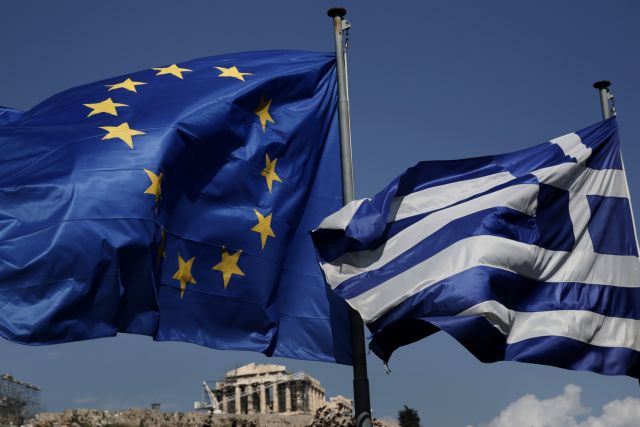The Greek government recently came to an agreement with the European Stability Mechanism (ESM) for a three-year bailout program, which will aim to help the Greek economy return to growth. The bailout includes up to 86 billion euros in funding, with up to 25 billion euros earmarked for the bank recapitalization.
At Friday’s Eurogroup, the Eurozone Finance Ministers agreed to take the necessary actions so that Greek debt becomes sustainable, meaning that the IMF will participate in the new bailout. The first review of the new program is scheduled for October 2015, when it will be determined what further actions are needed towards this goal.
According to government sources the new bailout program maintains the low primary surpluses that were agreed in Athens, namely -0.25% for 2015, +0.5% for 2016, +1.75% for 2017 and +3.5% for 2018. The Eurogroup also decided to break down the first 26-billion-euro tranche into two smaller installments, the first of which (10 billion euros) will be paid immediately for the recapitalization of the banks.
The second installment worth 16 billion euros will be paid out in portions, with the first 13-billion euros to be dispensed by the 20th of August. The remaining 3 billion euros will gradually be paid out during the autumn, provided that the agreed upon prior actions are implemented.
The extent of the next tranche, worth up to 15 billion euros, will be determined based on the outcome of the bank stress tests, after the first review. This is likely to occur before the 15th of November. The Eurogroup ruled out the possibility of a bail in from bank depositors, but it did not rule out the possibility of bondholders participating in the bank recapitalization. This, again, will be decide after the bank stress tests are carried out in mid October.
Regarding the privatization and asset management fund that will replace the existing agency (TAIPED), it was decided that the relevant legislation must go through Parliament by the end of October, so that it begins operating by the end of the year. The aim of the new fund will be to generate 50 billion euros from public assets, with 25 billion euros to be used for the bank recapitalization. Of the remaining 25 billion euros, 12.5 billion euros will go towards the Greek debt and the other 12.5 billion euros towards growth.
Other measures and initiatives that were agreed upon at Friday’s Eurogroup include actions to combat tax evasion, reforming the pensions system to support sustainability and efficiency, supporting investments, streamlining the public sector, carrying out reforms in the job and product market and tackling non-performing loans (“red loans”) among others.



